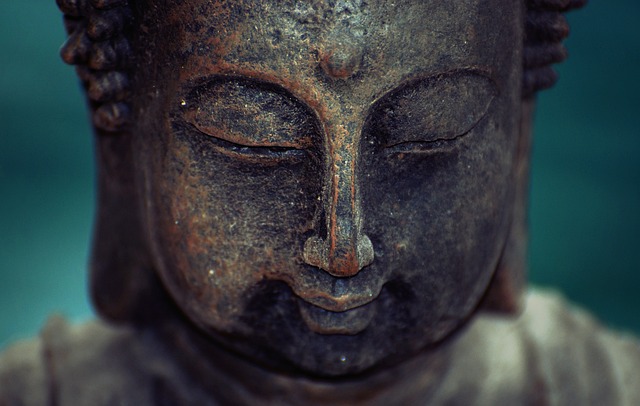Grief is a natural part of life, but it can be overwhelming and difficult to navigate. The pain of losing a loved one can leave us feeling lost and alone, struggling to find a way to move forward. While there is no one-size-fits-all solution to dealing with grief, meditation has been shown to be a powerful tool for healing. By quieting the mind and focusing on the present moment, meditation can help us find peace and acceptance in the midst of our pain. In this article, we’ll explore the benefits of meditation for grief and offer tips for incorporating this practice into your healing journey.
1. Finding Peace Amidst Grief: The Power of Meditation
Grief is a natural response to loss, and it can be a difficult and overwhelming experience. However, finding peace amidst grief is possible with the power of meditation. Meditation is a practice that can help calm the mind, reduce stress, and promote inner peace. It can be a powerful tool for those who are grieving, as it allows them to connect with their emotions and find a sense of calm in the midst of chaos.
There are many different types of meditation, and each one can be tailored to meet the needs of the individual. Some people find that guided meditations are helpful, as they provide a framework for the practice and help to focus the mind. Others prefer to simply sit in silence and focus on their breath, allowing their thoughts to come and go without judgment. Whatever method is chosen, the key is to approach the practice with an open mind and a willingness to explore the depths of one’s emotions.
- Benefits of Meditation:
- Reduces stress and anxiety
- Promotes inner peace and calm
- Improves emotional well-being
- Enhances self-awareness and mindfulness
Meditation can be a powerful tool for those who are grieving, as it allows them to connect with their emotions and find a sense of peace amidst the chaos. By taking the time to sit in silence and focus on the present moment, individuals can learn to accept their feelings and find a sense of calm in the midst of their grief. Whether it is through guided meditations, silent meditation, or other forms of mindfulness practices, the power of meditation can help individuals find peace amidst their grief.
2. How Meditation Can Help You Heal from Loss and Trauma
Meditation is a powerful tool that can help you heal from loss and trauma. It allows you to connect with your inner self and find peace amidst the chaos. Here are some ways meditation can help you heal:
- Reduces stress and anxiety: Meditation helps you calm your mind and reduce stress and anxiety. It allows you to let go of negative thoughts and emotions and focus on the present moment.
- Improves sleep: Loss and trauma can disrupt your sleep patterns. Meditation can help you relax and fall asleep faster. It also improves the quality of your sleep, leaving you feeling refreshed and energized.
- Boosts self-awareness: Meditation helps you become more aware of your thoughts and emotions. It allows you to observe them without judgment and understand them better. This can help you process your feelings and heal from your loss or trauma.
In addition to these benefits, meditation can also help you cultivate compassion, gratitude, and forgiveness. It can help you find meaning and purpose in your life and connect with others on a deeper level. If you’re struggling with loss or trauma, consider incorporating meditation into your daily routine. It may not be a quick fix, but it can help you find peace and healing in the long run.
3. A Journey to Inner Calm: Exploring the Benefits of Meditation for Grief
When dealing with grief, it can be difficult to find peace and calm within oneself. However, meditation has been proven to be a powerful tool in helping individuals cope with the emotional turmoil that comes with loss. Here are some of the benefits of meditation for grief:
- Reduced anxiety and depression: Meditation can help calm the mind and reduce symptoms of anxiety and depression that often accompany grief.
- Increased self-awareness: Through meditation, individuals can become more aware of their thoughts and emotions, allowing them to better understand and process their grief.
- Improved sleep: Grief can often disrupt sleep patterns, but meditation can help individuals relax and fall asleep more easily.
It’s important to note that meditation is not a cure for grief, but rather a tool to help individuals cope with their emotions. It can take time and practice to see the benefits, but incorporating meditation into a daily routine can help individuals find inner calm and peace during a difficult time.
In conclusion, meditation can be a powerful tool for healing grief. By allowing ourselves to sit with our emotions and thoughts, we can begin to process and release the pain that we carry. Through regular practice, we can cultivate a sense of inner peace and resilience that can support us through even the most difficult times. Whether you are new to meditation or have been practicing for years, it is never too late to start using this ancient practice as a way to heal and grow. So take a deep breath, find a quiet place, and begin your journey towards healing today.
